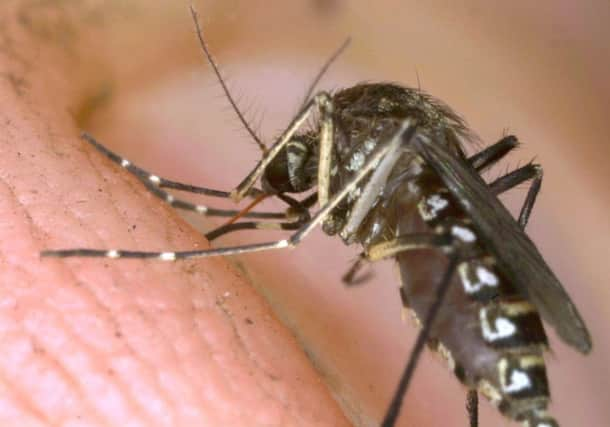Cost of Ebola threatens to wipe out Malaria gains


In its annual report on the disease, WHO said the malaria death rate fell by 47 per cent worldwide from 2000-13.
Fatalities decreased 53 per cent in children under the age of five – the equivalent of around 3.9 million children’s deaths.
Advertisement
Hide AdAdvertisement
Hide AdIn sub-Saharan Africa, where 90 per cent of all malaria deaths occur, the mortality rate fell by 54 per cent and 58 per cent in under fives, the report revealed.
However, WHO are warning that gains in the fight against malaria in West Africa are in jeopardy as resources and funds are channelled into fighting Ebola. In Sierra Leone, Guinea and Liberia, malaria programmes have been suspended in some areas as resources are directed into battling the deadly virus.
And the epidemic has put a huge strain on already fragile health services in the three countries, hit hardest by the worst Ebola outbreak in history which has so far claimed more than 6,300 lives.
WHO director general Margaret Chan, said: “The collapse of health systems has affected all core malaria interventions and is threatening to reverse recent gains.”
CONNECT WITH THE SCOTSMAN
• Subscribe to our daily newsletter (requires registration) and get the latest news, sport and business headlines delivered to your inbox every morning
In an analysis of malaria’s impact across sub-Saharan Africa, the UN agency found that despite a 43 per cent increase in population, fewer people in the region are infected every year.
“The next few years are going to be critical to show that we can maintain momentum and build on the gains,” said Pedro Alonso, director of WHO’s global malaria programme.
In West Africa, the report said, Ebola has had a “devastating impact” on malaria treatment and the roll-out of malaria control programmes. In Guinea, Sierra Leone and Liberia, many in-patient clinics are closed and attendance at outpatient facilities is a fraction of rates seen before the outbreak, it said.
Advertisement
Hide AdAdvertisement
Hide AdWith a major malaria threat in these countries, which together saw some 6.6 million cases and 20,000 malaria deaths in 2013, WHO called for temporary control measures, including giving malaria drugs to all patients with fever and carrying out mass treatment in areas badly hit by both Ebola and malaria.
“International donor financing is being stepped up to meet the further recommendation that bed nets be distributed to all [Ebola] affected areas,” the report said.
Malaria killed 584,000 people in 2013, including 453,000 children under five. Although funding to fight malaria has increased threefold since 2005, it is still only around half the $5.1 billion (£3.2bn) needed.
Ms Chan said in a statement that the data showed the fight against malaria could be won because “we have the right tools and our defences are working”. She added: “But we still need to get those tools to a lot more people if we are to make these gains sustainable.”
While access to insecticide-treated bed nets has improved, 278 million of the 840 million people at risk in sub-Saharan Africa still live in households without one. As many as 15 million pregnant women receive no preventative treatment, while 437,000 African children are still dying from the disease each year.
Richard Cibulskis, lead author of the WHO’s malaria report, said: “If people aren’t getting treated, you can be sure that mortality is going to increase.”
Aside from the direct consequences, the resurgence of malaria could also harm the fight against Ebola because the two have similar symptoms, making it difficult to diagnose the deadly virus, WHO said.
SCOTSMAN TABLET AND IPHONE APPS